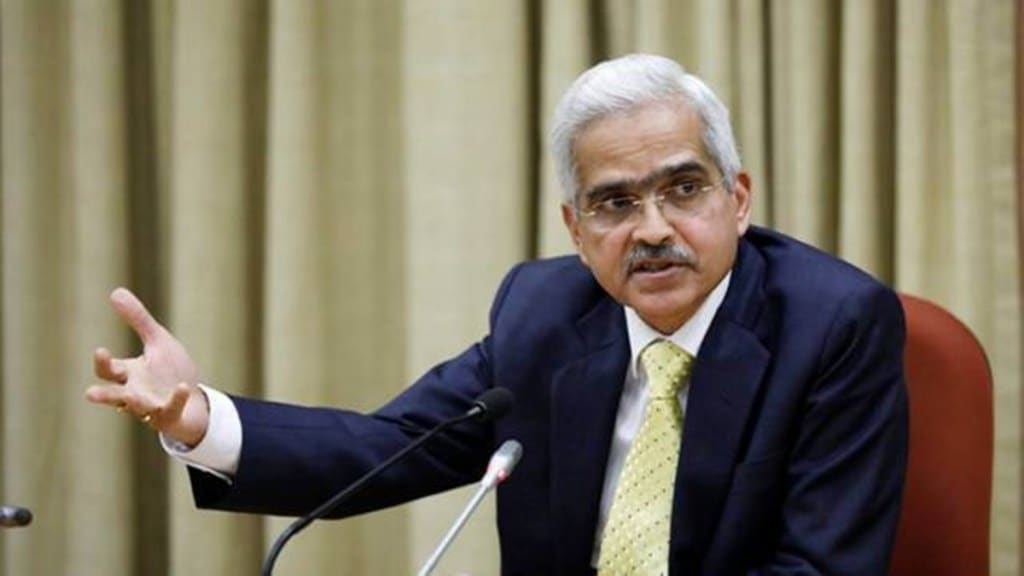The Reserve Bank of India’s (RBI) fight against inflation is “far from over” and it will have to continue its efforts to bring inflation closer to the 4% target over a medium term, governor Shaktikanta Das said during the RBI’s monetary policy committee (MPC) meeting held in April, according to the minutes released on Thursday. “Global inflation is easing, but at a tardy pace. Central banks face a runway which is becoming narrower and bumpy for soft-landing. I am, therefore, of the view that we do a tactical pause in this meeting of the MPC,” he said.
The six-member MPC unanimously decided to keep the policy repo rate unchanged at 6.50%. The MPC also decided to maintain its stance on “withdrawal of accommodation” to ensure that inflation progressively aligns with the target, while supporting growth. MPC member Jayant Varma, though, expressed reservation on the stance.
As per minutes, Das said the global macroeconomic scenario has changed drastically since the last time RBI’s MPC met in February. While geopolitical and higher inflation continue to impact the economic outlook, “the emergence of banking sector turmoil on both sides of the Atlantic” and the sudden announcement of oil production cut by the OPEC+ countries have rendered global outlook even more uncertain, he said.
Also read: Services by branch to head office to attract 18% GST: AAR
“…Inflation for 2023-24 is projected to soften, but the disinflation towards the target is likely to be slow and protracted. The projected inflation in Q4 of FY24 would still be well above the target. Therefore, at this juncture, we have to persevere with our focus on bringing about a durable moderation in inflation and at the same time give ourselves some time to monitor the impact of our past actions,” Das said.
Deputy governor (DG) Michael Patra shared similar views saying the RBI should remain on a high-alert mode and prepared to act pre-emptively if risks intensify on the price stability and growth fronts.
“In my view, the baseline projection for the real GDP growth at 6.5% for 2023-24 will benefit from an upside from budgeted capital expenditure; this advantage should not, however, be frittered away by inflation. By current reckoning, the future path of inflation is vulnerable to several supply shocks,” DG Patra said.
Breaching terminal rate
Ashima Goyal said since the inflation forecast for FY24 is at 5.2%, with Q4 inflation being projected at 5.2%, a repo rate of 6.5% implies the real policy rate is greater than one. The repo rate has already tightened enough to progressively bring inflation towards the target of 4%, with other complementary policies and barring major new shocks, she said, adding that a further rise in real interest rates is best avoided at present since high real rates can trigger a non-linear switch to a low-growth path. Already, the rising loan rates have started reducing demand for lower-income housing, she said.
“There is no logic for overshooting policy rates and then cutting in a country such as India where the largest impact of the interest rate is on growth, the relation between expected rupee depreciation and interest rates is weak, many tools are available to reduce excess volatility of the exchange rate and have been successfully used, the current account deficit has reduced and its financing is no longer an issue,” Goyal said.
Varma also said though there are early warning signs of a possible slowdown, policy makers must be vigilant against overshooting the terminal policy rate, and thereby slowing the economy to a greater extent than what is needed to glide inflation to the target.
Also read: What will future offices look like? What structures will they be and why?
On the MPC’s stance though, Varma said, “….I am unable to reconcile the language of the stance with the simple fact that no further “withdrawal of accommodation” remains to be done since the repo rate has already been raised to the 6.50% level prevailing at the beginning of the previous easing cycle in February 2019. It is of course possible to undertake further tightening, but that would not constitute a “withdrawal of accommodation” by any stretch of the imagination,” he said.
“I cannot put my name to a stance that I do not even understand. At the same time, it is clear that the war against inflation has not yet been won, and it would be premature to declare an end to this tightening cycle. There is need for heightened vigilance in the face of the fresh risks that I highlighted earlier in my statement. For these reasons, I refrain from dissenting on this part of the resolution, and confine myself to expressing reservations on it,” Varma said.

